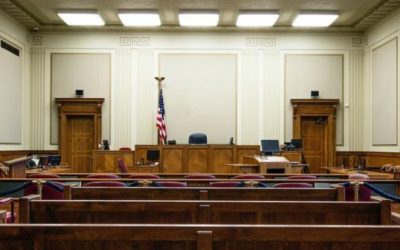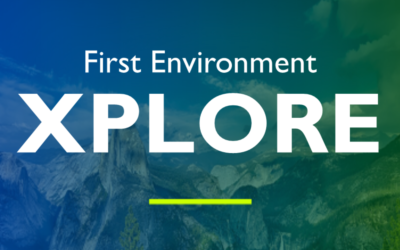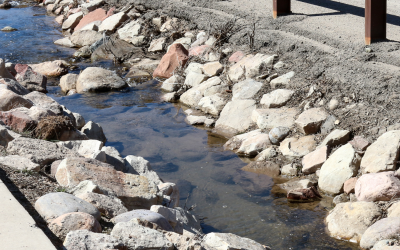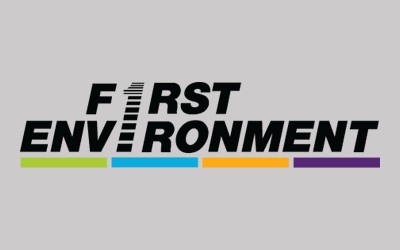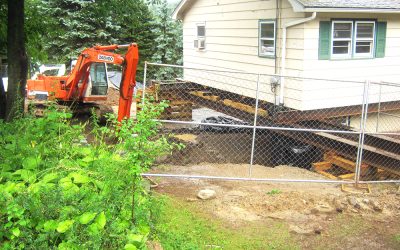Environmental Justice and the NJDEP Permitting Process

All New Jersey residents regardless of income, race, ethnicity, color, or national origin have a right to live, work, and recreate in a clean and healthy environment. Historically, New Jersey’s low-income communities and communities of color face a disproportionately high number of environmental and public health stressors, including pollution from numerous industrial, commercial, and governmental facilities located in those communities. As a result, these groups suffer from increased adverse health effects including, but not limited to, asthma, cancer, elevated blood lead levels, cardiovascular disease, and developmental disorders. New Jersey seeks to correct these outcomes by furthering the promise of environmental justice. The U.S. Environmental Protection Agency (EPA) defines environmental justice as “the fair treatment of meaningful involvement of all people regardless of race, color, national origin, or income with respect to the development, implementation, and enforcement of environmental laws, regulations, and policies.”
“Fair treatment” means that no group of people should bear a disproportionate share of the negative environmental consequences resulting from industrial, governmental, and commercial operations of policies.
“Meaningful involvement” means that:
- people have an opportunity to participate in decisions about activities that may affect their environment and/or health
- the public’s contribution can influence the regulatory agency’s decision
- community concerns will be considered in the decision-making process
- decision makers will seek out and facilitate the involvement of those potentially affected
Background
On September 18, 2020, Governor Phil Murphy signed the New Jersey’s Environmental Justice Law (EJ Law), which requires the New Jersey Department of Environmental Protection (NJDEP) to evaluate the environmental and public health impacts of certain facilities on overburdened communities when reviewing certain permit applications. Thanks to the tireless work of New Jersey’s environmental justice advocates, New Jersey is the first state in the nation to require permit denials if an environmental justice analysis determines a new facility will have a disproportionately negative impact on overburdened communities.
The New Jersey EJ Law defines an overburdened community as any census block group, as determined in accordance with the most recent U.S. Census, in which:
- At least 35 percent of the households qualify as low-income households (at or below twice the poverty threshold as determined by the U.S. Census Bureau);
- At least 40 percent of the residents identify as minority or as members of a State recognized tribal community; or
- At least 40 percent of the households have limited English proficiency (without an adult that speaks English “very well”, according to the U.S. Census Bureau).
There are approximately 310 municipalities (with populations totaling approximately 4,687,000 people) that have overburdened communities within their municipalities.
The law requires NJDEP to evaluate the environmental and public health impacts of the following facilities on overburdened communities when reviewing specific types of permit applications:
- Major sources of air pollution (i.e., gas fired power plants and cogeneration facilities)
- Resource recovery facilities, incinerators, sludge processing facilities
- Sewage treatment plants with a capacity of more than 50 million gallons per day
- Transfer stations or solid waste facilities
- Recycling facilities that receive at least 100 tons of recyclable material per day
- Scrap metal facilities
- Landfills
- Medical waste incinerators, except those attendant to hospitals and universities
If any of the above-listed facilities are located (or proposed to be located) in an overburdened community and submit a permit application under any of NJDEP’s Compliance and Enforcement (C&E) Divisions, an Environmental Justice Impact Statement (EJIS) is required to determine environmental justice applicability for that project. The EJIS is designed to ensure an understanding of the existing environmental and public health stressors in the community, determine how the proposed or existing facility will impact those stressors, and detail any measures the applicant proposes to address those impacts.
The main function of the C&E Divisions is to enforce environmental laws, rules, and regulations administered by NJDEP regulatory programs and delegated federal authority. C&E deters violations of those laws that would otherwise threaten the environment and citizens’ health. They also engage and educate the regulated community through a robust compliance assistance and training program and encourage voluntary “beyond compliance” efforts through their environmental stewardship program.
NJDEP Environmental Justice Initiatives
Environmental justice touches a wide variety of issues related to quality of life, including housing, health, and transportation. Low-income communities and communities of color in New Jersey and across the country often bear the brunt of pollution and the impacts of climate change. The NJDEP Office of Environmental Justice has three main priorities:
- Amend NJDEP’s internal work to incorporate environmental justice,
- Facilitate a council of NJ agencies to amend the way the entire state achieves environmental justice, and
- Engage with EJ communities and remove barriers to accessing resources so that communities are better informed and heard.
There are two notable programs associated with implementing environmental justice initiatives within NJDEP, including the Community Collaborative Initiative (CCI) and Supplemental Environmental Projects (SEPs).
Community Collaborative Initiative (CCI)
The CCI is a collaboration between NJDEP and the New Jersey Economic Development Authority (NJEDA) which works closely with local communities on mutual interests of environmental quality, economic development, and community revitalization. Currently, 12 New Jersey municipalities have been assigned an NJDEP CCI liaison: Bayonne, Bridgeton, Camden, Jersey City, Millville, Newark, Paterson, Paulsboro, Perth Amboy, Salem, Trenton, and Vineland. The liaison is intended to be a single point of contact to coordinate efforts within communities that would benefit from NJDEP involvement. The liaison’s connections within the community and the NJDEP are used to leverage expertise and resources to facilitate solutions that align with community interests and NJDEP goals. Members of these communities can find contact information for their respective liaisons here.
Supplemental Environmental Projects (SEPs)
An NJDEP SEP functions as an environmentally beneficial project that an EJ Law violator voluntarily agrees to perform as a condition of settling an enforcement action. In other words, an SEP is an activity that the violator would not otherwise have been required to perform, and in which the public or the environment is the primary beneficiary.
 Hawk Rise Sanctuary Supplemental Environmental Project, Linden, NJ. Photo courtesy of www.NJ.gov
Hawk Rise Sanctuary Supplemental Environmental Project, Linden, NJ. Photo courtesy of www.NJ.gov
Since January 2010, 72 SEPs have been implemented between the NJDEP‘s C&E Divisions. The NJDEP C&E Divisions include:
- Air Enforcement
- Compliance Operations & Coordination
- Waste Enforcement, Pesticides and Release Prevention
- Water and Land Use Enforcement
Upcoming Release of the New NJDEP Environmental Justice Rules
Currently, the New Jersey EJ Law exists as N.J.S.A. 13:1D-157, et. seq., and can be found here. Subsequent to the release of the NJ Law in 2020, Commissioner Shawn M. LaTourette issued Administrative Order 2021-25 (AO 2021-25) on September 22, 2021. AO 2021-25 is designed to provide guidance and certainty regarding NJDEP’s expectations for facilities located or seeking to be located in overburdened communities prior to the adoption of new EJ Law Rules, which have not yet been released. The opportunity for public comment was offered until September 4, 2022 and the official version is now pending adoption. The proposed new rules can be found here.
Additional Links
- NJDEP Office of Environmental Justice
- New Jersey Environmental Justice Law
- Administration Order No. 2021-25
- FAQ for AO 2021-25 about NJ’S EJ Law
- Administrative Order 2021-25 Public Hearings
- NJDEP Notice of Rule Proposals
- New Jersey Economic Development Authority
- More about SEP Policy
- Environmental Justice Mapping, Assessment and Protection Tool
Read more about our Regulatory Compliance and Auditing services as well as our State & Local Government sector at First Environment!
Ms. Raiani is an environmental specialist and biologist with 15 years of experience in environmental consulting and regulatory compliance services. Her expertise spans various areas, including environmental compliance and stormwater management. Throughout her career, she has conducted thorough environmental compliance audits, developed updated industrial Stormwater Pollution Prevention Plans (SPPPs) provided SPPP training, developed and authored environmental alerts for the New Jersey Environmental Joint Insurance Fund, which emphasized critical issues and fostered awareness among stakeholders. Ms. Raiani is also versed in navigating environmental permitting processes, including NJDEP Freshwater Wetlands General Permit and Flood Hazard Area Individual Permit applications. She has also participated in wetland delineation, wetland mitigation monitoring, and surveys of threatened and endangered species.
Regarding site investigation and remediation, Ms. Raiani has experience in managing contaminated site investigations and remediation at residential, commercial, and industrial properties. She has prepared various reports to the NJDEP under the LSRP program. These submittals included Preliminary Assessments for the Green Acres Program, Phase I Environmental Site Assessments, Site Investigation Reports, Remedial Investigation Reports, Remedial Action Reports, Remedial Action Workplans, and various NJDEP Site Remediation Reform Act (SRRA) forms.

